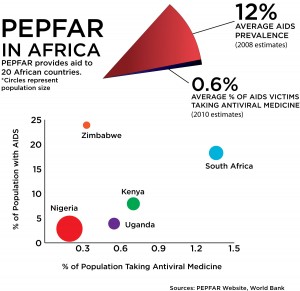Emergency to Efficiency
The silver lining of shortfalls in PEPFAR funding By many accounts, the President’s Emergency Plan for AIDS Relief (PEPFAR) was among the most impressive accomplishments of George W. Bush’s foreign policy. Since 2004, PEPFAR has increased the number of Africans receiving antiretroviral therapy from 50,000 to 2.5 million. Despite the program’s successes, however, PEPFAR’s funding … Read more
